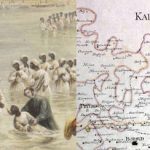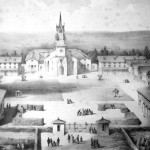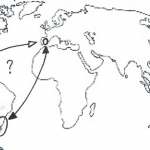
‘Conceptual Experiments’ in Carcerality and Colonialism
Preamble: In December, the Carceral Archipelago team – including Clare Anderson, Kellie Moss, Katie Roscoe, Carrie Crockett, Lorainne Paterson, Anna McKay, and Adam Barker – attended the Carceral Geographies Conference at the University of Birmingham. For those interested in further content from the conference, please see this Storify, and full talks and presentation slides are […]

The “Pains of Imprisonment”: an historical sociology of penal transportation?
A few years ago, the eminent scholar of the Russian Gulag, Professor Judith Pallot, challenged me to consider the relevance of the sociology of incarceration as a means of understanding convict experiences in penal colonies. She advised me to think in particular about Gresham M. Sykes’ classic 1958 text, The Society of Captives: A […]

A Snapshot of Collaborative Work in History
During my PhD study and for the first ten years of my academic career, I researched alone. I went to the archives, I discussed and presented my work to academic audiences, and I published books and academic papers. Though like many others, I felt myself to be engaged in a larger intellectual project (subaltern studies, […]

The case for ‘remain’ in the EU referendum – my view as the director of a €1.5 million European funded research project in History
At the end of last week, thirteen Nobel prize-winning scientists wrote a letter to the right leaning newspaper The Daily Telegraph, urging Britain to vote ‘remain’ in the forthcoming European Union (EU) referendum. The scientists warned of the consequences of a British exit (or ‘Brexit’) from the EU, drawing attention to the fact that […]

Thinking sociologically about the history of convicts and penal colonies
In the early 1990s I had the privilege of studying with David Garland, then teaching and researching in Edinburgh University’s Law School. He had recently published a wonderful book – Punishment and Modern Society: a study in social theory – which remains as relevant and important today as it was then. Week by week, Professor […]

The Carceral Archipelago Conference, Leicester 13-16 September 2015
The Carceral Archipelago conference, held in Leicester from 13 to 16 September 2015, felt just like reading over thirty outstanding monographs in two-and-a-half days, getting to know their authors personally, and having the chance to reflect collectively about their mutual entanglements. It was an intense marathon through the burgeoning field of the global history of […]

On multi-sited research and mono-sited (nationalist) memory
Addressing convict transportation –the key feature in the Carceral Archipelago project – implies multi-sited research, that is, research in archives located in different places (and countries/continents). Indeed, as convicts were transported from site to site within and beyond the borders of empires and nation-states, they left traces in official records presently held in repositories across […]

Where Empires Meet
In a previous blog, I wrote on the theme of the politics of comparison, of the connected history of circulation and mobility that underpins the CArchipelago project team’s approach to the historiography, theory and archive of penal colonies. Research associate Christian De Vito has since expanded the discussion, discussing the basis of various approaches […]

Comparisons and Connections (part 1)
In her last blog (https://staffblogs.le.ac.uk/carchipelago/2015/02/05/the-politics-of-comparison-writing-a-global-history-of-punishment/), Clare Anderson points to the challenges the Carceral Archipelago Project faces in writing the history of punishment as global history. Indeed, addressing the singularity of each site and connection of convict transportation and proposing broader interpretations is a complex task, which requires a high degree of self-reflexivity regarding our methodological […]

Recent Comments